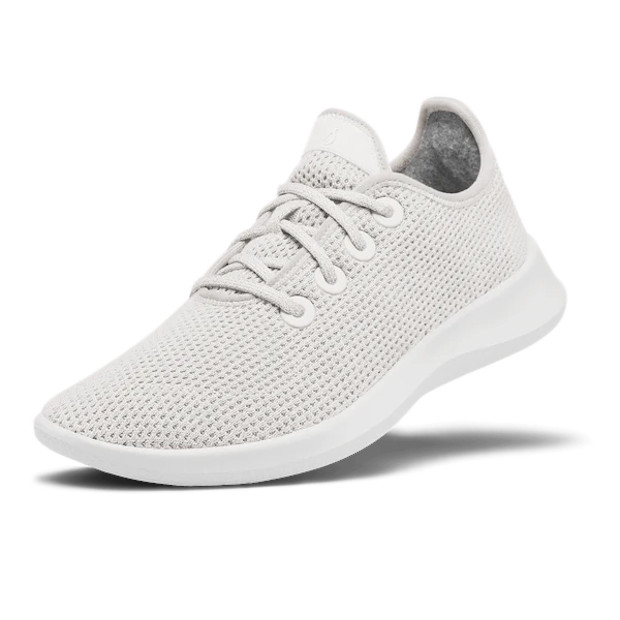
14 Weeks Pregnant
At week 14, your baby is the size of a roll of bubble gum tape, and you may be starting to feel a little more human.

In This Article
In week 14, your baby is now the size of a roll of bubble gum tape. This is also the first week of what many people call the honeymoon phase of pregnancy. You’re glowing, and people are noticing. Enjoy this part of the journey as your baby continues to develop.
Some things to look forward to in week 14 of pregnancy: baby is forming facial muscles, which means you might catch some cute little expressions on your next ultrasound. And since you’re likely feeling better, you might be ready to put your sneakers on and get a little more active. You may have some new symptoms pop up, but otherwise, get ready to soak in the good vibes of the second trimester. Read on for more on what to expect at 14 weeks pregnant.
How Many Months Is 14 Weeks Pregnant?
Fourteen weeks pregnant in months is 3.5 months pregnant, which is part of the second trimester of pregnancy. If you haven't figured out your due date yet, you can use our due date calculator.
Your Baby at 14 Weeks
At 14 weeks gestation, your baby is developing facial muscles and using them to form expressions. Your baby is still tiny but their organs are getting up and running. Unpleasant symptoms you had in the first trimester are also likely subsiding followed by some new ones.
How Big is a Baby at 14 Weeks?
At 14 weeks, baby is about 3.5 to 4 inches long from crown to rump and weighs around 2 ounces. They’re about the size of a roll of bubble game tape.
14 Weeks Pregnant Ultrasound
As they develop facial muscles, babies are able to make expressions, and you might see your baby squinting or frowning in your ultrasounds. “If you are lucky, they will throw a smile in there just to say hey,” says Dr. Tanja Premru-Sršen. Chances are you’ve been screened for chromosomal abnormalities by this stage, but the 14th week is the last chance to perform a chorionic villus sampling (CVS), which screens for Down Syndrome, cystic fibrosis and other conditions. If you’ve been screened for preeclampsia by this point, it’s also a good time to introduce low-dose aspirin to preventatively treat it. Dr. Premru-Sršen says your doctor can do this up until week 16.
At this stage, baby’s genitals are developing but Dr. Lauren Demosthenes, an ob-gyn and Senior Medical Director with Babyscripts, says it’s usually too early to tell the sex accurately through ultrasound alone. If you’ve had a CVS, you can find out, although many people wait until their anatomy scan, which happens closer to 20 weeks.
Fun Fact
The longest pregnancy on record was 375 days, as reported by Time magazine in 1945. Yep, that’s more than a year!
14 Weeks Baby Movement
“A lot of us think that a baby only develops hair on its head in the early stages of pregnancy, but oh no,” says Dr. Premru-Sršen. “They are also developing a thin layer of hair on their body called Lanugo. Sounds fancy, right?” Lots of other changes are taking place for your baby this week.
“Lower limbs are developed. Toenails are forming,” Dr. Demosthenes says.
Baby’s skin will begin to thicken, and they’ll be able to move their eyes. Taste buds are also developing, and baby is learning to open and close their fists and bring them to their mouth.
Your Body at 14 Weeks of Pregnancy
Week 14 ushers in a new stage of pregnancy where you’re likely showing, and friends and coworkers may be noticing. Baby’s major organs have all begun to develop, and now each ultrasound you get will show a clearer picture of the baby forming within. This is the honeymoon stage of pregnancy, where many early symptoms subside, and you may be sleeping better and have more energy.
14 Weeks Pregnant Symptoms
In your second trimester, morning sickness has subsided for most people but still remains for a lucky few. You might be noticing some round ligament pain as baby moves. Varicose veins might arrive, bringing with them an achy, burning feeling.
Morning sickness
There’s a small chance you’re still feeling icky. “Nausea and vomiting during pregnancy is the most prevalent pregnancy symptom that affects about 50% to 90% of pregnant women,” says Dr.Premru-Sršen. “It commonly appears in the sixth to eighth weeks of pregnancy and reaches its peak at about the ninth week.”
If you’re experiencing morning sickness at this stage, talk to your doctor. Dr. Premru-Sršen suggests home remedies such as chamomile tea, green cardamom, pomegranate, spearmint syrup, lemon and ginger to ease symptoms.
Round ligament pain
The round ligament runs along each side of the uterus from the front to the pelvis. Dr. Premru-Sršen says the body releases a hormone early in pregnancy called relaxin to help stretch out the round ligament as your uterus expands. Still, you might experience pain as that happens. “A sudden movement, movement of the baby, sneezing, or coughing can provoke a tightening of the round ligament. A pregnant [person] feels a sudden tightening of the round ligament as a sharp pain on one or both sides of the uterus,” she says.
While unpleasant, this pain is not a sign of something serious. To avoid sharp pains, don’t stand suddenly or rotate rapidly. If you’re experiencing frequent pain from sudden movements, a belly band might help.
Varicose veins
Some people are genetically predisposed to varicose veins, which means they’ll experience the heavy, achy, burning sensations that accompany their formation following long periods of standing or sitting.
“During pregnancy, hormonal changes, mainly progesterone, and increased pressure in the abdomen, add significantly to the development of varicose veins, mainly on the lower extremities and sometimes on external genitalia,” Dr. Premru-Sršen says. “Constipation during pregnancy and a diet low in fiber and fluids contribute to developing hemorrhoids, which are varicose veins under the rectal lining.”
Obesity and excessive weight gain during pregnancy can lead to varicose veins as well. Dr. Premru-Sršen suggests external compression and nonrestrictive clothing. Avoid sitting or standing for prolonged periods of time as well.
Pregnancy Symptoms Coming up in Week 15
The fun doesn’t stop at week 14. During week 15, you can expect swollen gums, and major indigestion. But there’s good news, too. You’ll likely see a boost in your libido and your appetite.
✅ 14 Weeks Pregnant Checklist
Make a date to catch up with a friend.
Buy a good pair of sneakers with plenty of arch support to help keep you on the move during the last two trimesters.
Start preparing for maternity leave by listing all your work duties, so they can be completed by others while you’re gone.
Commonly Asked Questions About 14 Weeks Pregnant
Is my immune system weakened during pregnancy?
No, it’s not. Dr. Premru-Sršen says this is a myth that comes from the fact that the woman’s body is working to prevent an immune response against the father’s antigens. In some cases, a mother might feel sick as her body adapts to the baby’s presence, but she isn’t more likely to come down with a cold.
Can I exercise at this stage?
If you’re starting to feel more energetic, consider adding exercise to your daily routine. It can reduce pregnancy side effects and symptoms, increase energy, prevent gestational diabetes, improve mood, help you sleep and maybe even make childbirth easier. The best kind of exercise? Whatever you’ll enjoy doing, as long as it doesn’t carry an injury risk.
What if I’m still feeling sick?
As we mentioned, a small number of people will still experience morning sickness at this phase. If it persists, talk to your doctor. It could be a severe form called hyperemesis gravidarum, which can be treated.
Recommended Products
If you’re feeling good at this stage, you might want to invest in a pair of comfortable shoes so you can get active—with plenty of support, of course. And don’t forget to prioritize self-care!
Sources
Credit: Prof. Tanja Premru-Sršen, M.D., Ph.D
Dr. Lauren Demosthenes is an ob-gyn and Senior Medical Director for Babyscripts.



